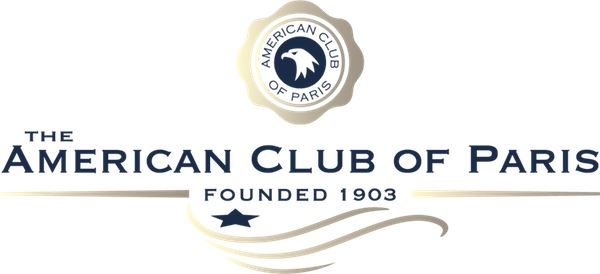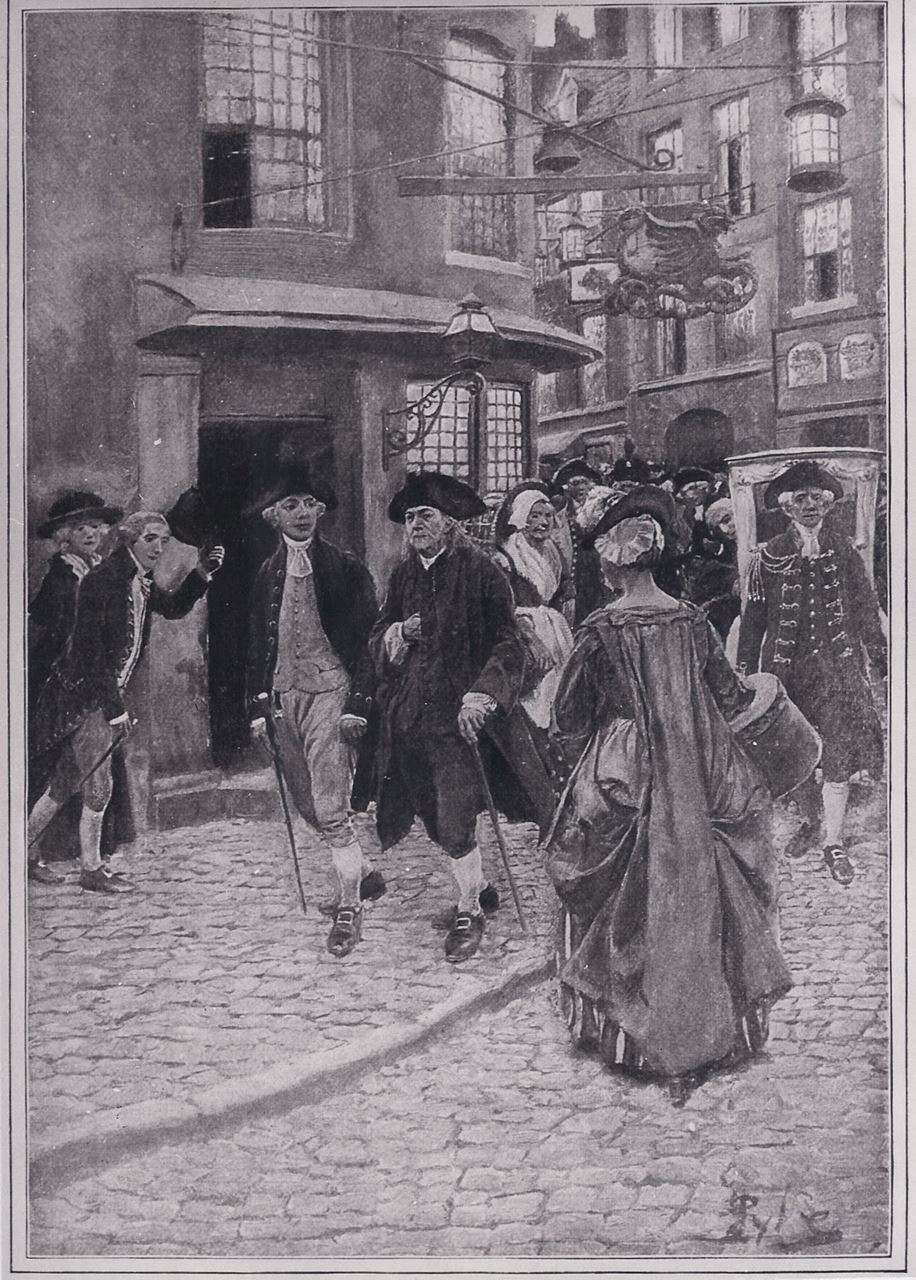THE ORIGINS AND HISTORY OF THE AMERICAN CLUB During the darkest period of the War of American Independence, Benjamin Franklin, then living in his hospitable and imposing residence at Passy - l'Hôtel Valentinois, 4 rue Basse, now rue Rayouard - adopted the pleasing custom of Sunday dinners to cheer up his fellow countrymen in Paris. At about three o'clock in the afternoon on a bright crispy Sunday in December 1777, a group of Americans sat at Franklin's table. Notwithstanding the fine bracing weather, and in spite of the sumptuous yet delicate dishes and the choice of wines of Bordeaux, Burgundy, and Champagne that enhanced Franklin's repasts, gloom and sadness prevailed. Reports had reached Paris that General Sir William Howe had taken Philadelphia. Suddenly, a chaise-poste, drawn by three horses abreast, dashed into the courtyard. Jonathan Austin, a young American from Boston, wrapped in a travel-worn fur coat, alighted and announced that he had just arrived with urgent dispatches entrusted to him by Congress. "Is Philadelphia taken?" asked Franklin. "Yes, sir," was the reply. Franklin, with a bowed head, sank into the chair. "But I have later news than that, sir: General Burgoyne has been defeated and his whole army has surrendered. "Franklin's eyes beamed behind his big horn spectacles, as he cried to his butler: "Champagne for Mr. Austin who brings this glorious news!" Franklin at once apprised the Court of Versailles of the news of this American victory, and did so with such tact and force that five days later, he was informed by the Count of Vergennes that the King had decided to recognize American Independence and make a treaty with the United States. |
These Sunday dinners became a weekly feature of Franklin's diplomatic mission in France. They took place with the same regularity as the luncheons of the present American Club, of which indeed they were a precursor.
So, in fact, Benjamin Franklin may be considered the true founder of the American Club of Paris.
After the break caused by the French Revolution of 1789, the Franklin traditions were resumed and club dinners were usually celebrated under the auspices of our Ministers and Ambassadors.
The long chain of clubs - Latin Quarter Club, Cradle Club, Pen and Pencil Club, the Ramblers and Stanley Club leading up to the Universities Club and The American Club of Paris.
During the Thanksgiving Dinner in 1903 of the Universities Club, membership of which was limited to American Universities, under the auspices of General Horace Porter, American Ambassador to France and Honorary President of the Universities Club, William S. Dalliba was elected by acclamation as President of the American Club of Paris. The course aux flambeaux, by which the sacred flame of Minerva was transmitted to successive generations in ancient Greece was thus revived, and the spirit of Franklin still lives in our hearts.
During the Great War, the American Club rendered inestimable service, not only in keeping alive good fellowship among Americans, both resident and visiting, but especially so between Frenchmen and our own countrymen. The American Club thus developed logically, with the growth of a young giant, into a the powerful and patriotic institution as it exists today, and the Franklin dinners of 1777, through their consecutive transformations, became the American Club luncheons, which still continue.
C. Inman Barnard
ACP President 1922


